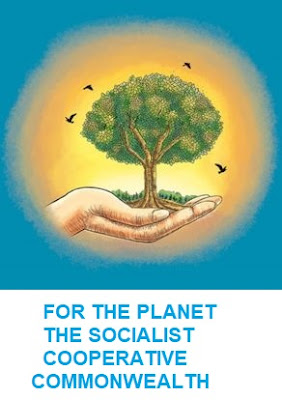Researchers from the Institute for Public Policy Research (IPPR) and Chatham House, said, the world is at risk of descending into a climate “doom loop”. Its report said that simply coping with the escalating impacts of the climate crisis could draw resources and focus away from the efforts to slash carbon emissions, making the situation even worse.
The damage caused by global heating across the globe is increasingly clear, and recovering from climate disasters is already costing billions of dollars. Furthermore, these disasters can cause cascading problems including water, food and energy crises, as well as increased migration and conflict, all draining countries’ resources.
A current example of the impact of the climate crisis complicating efforts to reduce emissions and other actions was the debate over whether keeping the global temperature rise below 1.5C – the international goal – was still possible. Those arguing 1.5C was still possible risked perpetuating complacency that today’s slow pace of action was sufficient, the researchers said, while those arguing it was not possible risked supporting fatalism that little that could now be done, or “extreme approaches” such as geoengineering.
The report said: “This is a doom loop: the consequences of the climate crisis draw focus and resources from tackling its causes, leading to higher temperatures and ecological loss, which then create more severe consequences, diverting even more attention and resources, and so on.”
Avoiding a doom loop required a more honest acceptance by politicians of the great risks posed by the climate crisis, the researchers said, including the looming prospect of tipping points and of the huge scale of the economic and societal transformation required to end global heating.
“We’ve entered, sadly, a new chapter in the climate and ecological crisis,” said Laurie Laybourn, an associate fellow at IPPR. “The phoney war is coming to an end and the real consequences now present us with difficult decisions..."
“The thing I’m most concerned about is that we’re not factoring in the cascading risks to societies,” said Laybourn. “It’s not just the big city-smashing storms we should be concerned about, it’s the consequences that ripple through our globalised systems. For the UK, it may not necessarily be the sheer cost of responding to disasters that’s the biggest distraction. It could be that it has to deal at the same time with a food price shock and resurgent nativism, playing off fears about so-called climate refugees,” he added.
Laybourn said, greener transport was not simply about switching to electric vehicles, but about better public transport and redesigned cities that meant people were closer to the jobs, education and healthcare they needed.
Unfairness in climate policy could drive the doom loop, Laybourn said, because if people felt unaffordable changes were being forced on them they would reject the need for a green transition. But, he added: “If you have fairness at the heart of things, it can instead be a virtuous circle, if you’re in a situation where people recognise that switching to a heat pump and having better insulation will be better for them regardless of the climate crisis.”
It noted that Africa’s economy was already losing up to 15% of GDP a year to the worsening effects of global heating.
World risks descending into a climate ‘doom loop’, warn thinktanks | Climate crisis | The Guardian


No comments:
Post a Comment